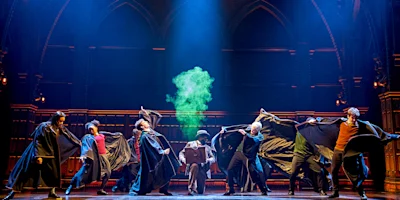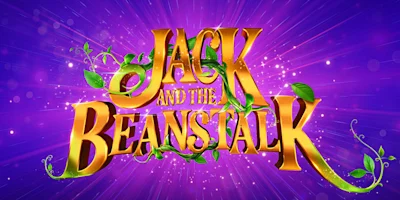
Shakespeare's Globe Events this Autumn 02
Shakespeare's Globe Events this Autumn 02
Shakespeare's Globe Theatre has announced events this autumn.
Tickets: £8.00 (£7.00 GlobeLink/FoSG/conc) £5.00 student
To book, please contact Shakespeare's Globe Box Office (020 7401 9919)
Venue: The Globe Education Centre Theatre, Bear Gardens, SE1
Plays featured.....
Women Beware Women (c. 1621)
by Thomas Middleton
Sunday 3 November 02
Newly-wed Bianca is seduced in her husband's absence by the Duke of Florence. He's helped by Livia, who also tricks her own niece into an incestuous relationship with her uncle (Livia's brother). Bianca's husband, accpeting public cuckoldry in return for the Duke's favours, is then himself the target of Livia's desire.
Based to some extent on actual events in 1560s Italy, this play (one of Middleton's two tragic masterpieces) journeys from dreams of love and fidelity through increasing depravity, climaxing in a masque that provides one of the most outrageous set pieces of murderous revenge in all drama - featuring molten gold, trap doors, suicide and four varieties of posioning.
The Insatiate Countess (1610)
by John Marston, William Barksted and Lewis Machin
Sunday 10 November 02
What should we do in this Countess's dark hole...
What should we unruly members make here?
In a play dripping with innuendo from its very first lines, sexual obsession leads to murder as Isabella, widowed Countess of Swevia, wastes little time in remarrying, before running off with another man. And then another. And yet another. Meanwhile, two new brides coolly frustrate their husbands' wife-swapping attempts at revenge.
Marston's incomplete draft was finished by Barksted (an actor) and his associate Machin. Presented by a boys company at the Whitefriars, it is unusual for its time in showing female characters driven explicitly by sexual desire.
Sappho and Phao (1584)
by John Lyly
Sunday 17 November 02
Venus gives lowly ferryman Phao the gift of beauty and (aided by Cupid) causes him and royal Sappho to fall in love. However, the social barriers remain, allowing Lyly to explore the tension between prohibition and desire.
Vulcan, the prophetess Sybylla, a Cyclops and two young men (one a courtier and one a scholar), together with their impish pages, join the cast of this comedy played by boys at Court and at the Blackfriars.
Combining astonishingly eloquent prose with an acute awareness of language's inherent ambiguities and limitations, the experience of how it actually feels to be profoundly in love is presented on the English stage for the very first time.
Venus and Adonis (1593)
by William Shakespeare
Sunday 24 November 02
In the 1593 Quarto's dedication to his patron Henry Wriothesley, Third Earl of Southampton, Shakespeare described this Ovidian narrative poem as 'the first heir of my invention'. Whether he meant his first poem or first published work we do not know, but it was an instant sensation and was rapidly re-printed.
This 1194 lines tell the mythic story of the love-sick Venus' attempts to seduce the younger, reluctant Adonis; his death in the hunt, fatally wounded by a boar; and his subsequent transformation into a flower. This will be a staging of perhaps the most famous erotic poem in the world.
The Labyrinth of Desire (La Prueba de los ingenios)
by Lope de Vega (translated by Michael Jacobs)
Sunday 1 December 02
In association with Out of the Box Productions
Lope de Vega was amazingly prolific but many of his greatest and most original works are scarcely known today. Unperformed since the 17th century, and translated now for the first time, The Labyrinth of Desire is a hilarious and thought-provoking erotic comedy that has at its heart the sexually ambivalent relationship between two women. Set in an Italian Court, and featuring a female aristocrat who pretends in turn to be a lady-in-waiting and then a man in woman's clothing, it is a tale of wits pitted against wits, and men against women, until eventually everyone ends up in a real labyrinth built in imitation of that at Knossos.
Prices include a ticket for the performance.
Venue: The Inigo Jones Theatre shell, Shakespeare’s Globe, New Globe Walk, SE1
Women Beware Women Sunday 3 Nov 02 12noon-2.00pm
The Insatiate Countess
Sunday 10 Nov 02 12noon-2.00pm
Sappho and Phao
Sunday 17 Nov 02 12noon-2.00pm
Venus and Adonis
Sunday 24 Nov 02 12noon-2.00pm
The Labyrinth of Desire
Sunday 1 Dec 02 12noon-2.00pm
Stanley Wells is Chairman of the Shakespeare Birthplace Trust. He was Professor of Shakespeare Studies and Director of the Shakespeare Institute, University of Birmingham, from 1988 to 1997, and is now Emeritus Professor. He has been General Editor of the Oxford Shakespeare since 1978. One of the most distinguished Shakespearean scholars currently working, his publications include Shakespeare in the Theatre: An Anthology of Criticism (2000), The Oxford Dictionary of Shakespeare (1998), and Re-editing Shakespeare for the Modern Reader (1984). He is also general editor of the Shakespeare Survey, and co-editor of The Cambridge Companion to Shakespeare and The Oxford Companion to Shakespeare.
Stanley is a Trustee of Shakespeare’s Globe, and regularly contributes to its seasonal magazine, Around the Globe.
Lewd Interpreters
Wednesday 30 Oct 02 7.00pm-8.00pm
Lewd Interpreters will look at scholarly, critical, and theatrical readings of the text, attempting to distinguish between legitimate readings between the lines and over-readings that are a-historical and sometimes untheatrical in imposing upon the texts meanings that must originate rather in the minds of the interpreters than of the dramatist. When, it will ask, do sexual interpretations proceed from what would once have been considered the ‘dirty minds’ of the interpreters rather than from the imaginations of the dramatist and of his early audiences? Theatrical and critical interpretations of A Midsummer Night’s Dream will provide a focus for this lecture.
The Originality of Shakespeare's Sonnets
Wednesday 13 Nov 02 7.00pm-8.00pm
The Originality of Shakespeare’s Sonnets will consider the writer’s defiance of convention in idealizing male love objects and in deploring his sexual entanglement with a female. Does this reflect Shakespeare’s personal experience? Was he himself ‘in love’ with one or more young men? Do the Sonnets imply what would now be called homosexuality in the author, or are they rather quasi-dramatic projections of the imagination of a writer who had a consummate ability to imagine himself into minds different from his own?
Men Loving Men in Shakespeare's Plays
Wednesday 27 Nov 02 7.00pm-8.00pm
Men Loving Men in Shakespeare’s Plays will look at homosexuality in the plays. To what extent do the plays directly portray sexual relationships between men? How legitimate is it to read homosexual relationships between the lines? When did the theatre start to make homosexuality explicit? What is the relationship between critical interpretation and theatrical projection of homosexuality in the plays?
Each week, the director Giles Block will explore a different aspect of the verse: how the voice of the sonnet differs from the voice of the character; how verse form reflects thought process; and how the words (in verse and prose form) are suited to action within a particular type of performance space. Pentameters will be led by Giles Block with demonstrations given by one of the Globe Company actors.
Giles Block is now Master of the Words at Shakespeare's Globe. He has been Master of Verse on King Lear and Julius Caesar, and of Play and Verse on Hamlet and Antony and Cleopatra. Giles was presented with the first award ever given to a westerner by the Japanese theatrical establishment for his work with the Shochiku Theatre Company in Japan. Between 1974 and 1977 he was Associate Director at Ipswich Theatre; and in 1997 he directed a Shakespeare workshop production of The Winter's Tale at the National Theatre Studio.
Tickets: £5.00 (£4.00 GlobeLink/FoSG/conc) £2.00 student
Venue: Nancy W. Knowles Lecture Theatre, New Globe Walk, SE1
Pentameter, the Voice and Shakespeare's Early Plays and Poems
Tuesday 5 Nov 02 7.00-8.30pm
Pentameter or Prose in the Plays of Shakespeare and His Contemporaries
Tuesday 19 Nov 02 7.00-8.30pm
Pentameter and a Redefinition of Character in Shakespeare's Later Plays
Tuesday 3 Dec 02 7.00-8.30pm
Prunella Scales is one of the country's most celebrated and best-loved actors. She is also a highly respected teacher whose masterclasses have inspired many drama students and fellow actors.
This masterclass is offered for professional actors and recent drama graduates (of any age and experience) who wish to explore the language of the Sonnets and tackle some of the challenges associated with speaking Shakespeare's verse.
Participants are asked to prepare one of Shakespeare's sonnets as an acting exercise and to bring a copy of the Sonnets to the class.
Tickets: £8.00
Venue: Inigo Jones Studio Theatre, New Globe Walk, SE1
Originally published on









